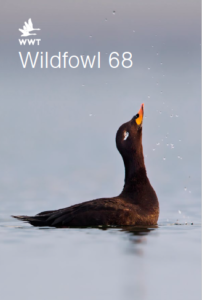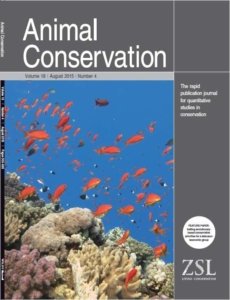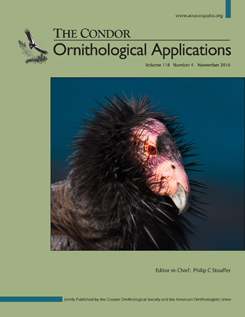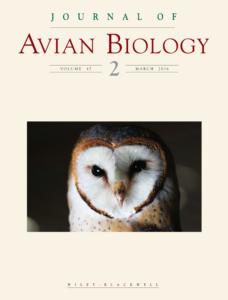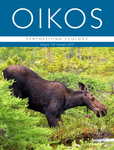ANNUAL NEWSLETTERS
MAILCHIMP NEWSLETTER ARCHIVE
Find our newsletter archive here: Link
PUBLICATIONS
2025
Noah J. Hunt, Lisa H. Crampton, Tyler A. Winter, Jack D. Alexander, Roy Gilb, Richard J. Camp. Climate-driven collapse of the native avifauna and the rise of introduced bird species. Biodiversity and Conservation. https://link.springer.com/article/10.1007/s10531-025-03111-z
Christopher C. Kyriazis, Madhvi Venkatraman, Bryce Masuda, Cynthia C. Steiner, Loren Cassin-Sackett,Lisa H. Crampton, Alison M. Flanagan, Jeffrey T. Foster, Marlys L. Houck, Ann C. Misuraca, Eben H. Paxton, Jacqueline A. Robinson, Robert C. Fleischer, Oliver A. Ryder, Michael G. Campana, and Aryn P. Wilder. Current Biology. Population genomics of recovery and extinction in Hawaiian honeycreepers https://authors.elsevier.com/sd/article/S0960-9822(25)00575-5
2024
Kathryn A. Temple, Jean Fantle-Lepczyk, and Christopher Lepczyk, Lisa H. Crampton, Robert A. Gitzen, Mari Reeves, Roy Gilb, Do the Tracks Track? Evaluating the Effectiveness of Baitedplate s for Rat Monitoring in a Montane Rainforest. Proceedings of the Vertebrate Pest Conference, 31(31)
https://escholarship.org/uc/item/2n56j861
Zhao S., B. Webber, C. Seidl, C. Carnes, C. Doyle, N. Dautreppe, E. Dyson, L. Navarette, K. Takakura, A. Cabrera, J. Alexander, T. Soalt, M.K. Hollenberg, P. Krieger-Coble, H. Mounce, L. Crampton. 2024. Aerial biolarvicide application for mosquito control in endangered forest bird habitats on Maui and Kauaʻi. Pacific Cooperative Studies Unit Technical Report #207. Aerial biolarvicide application for mosquito control in endangered forest bird habitats on Maui and Kauaʻi. scholarspace.manoa.hawaii.edu/items/779b8644-71e3-4809-8acc-9e778f6435f2
Costantini, M; Videvall, E; Foster, J; Medeiros, M; Gillece, J; Paxton, E; Crampton, L; Mounce, H; Wang, A; Fleischer, R; Campana, M; Reed, F A. (in press). The Role of Geography, Diet, and Host Phylogeny on the Gut Microbiome in the Hawaiian Honeycreeper Radiation. Ecology and Evolution
2023
Erica M. Gallerani, Jeff Burgett, Nicholas Vaughn, Lucas Berio Fortini, Geoffrey Andrew Fricker, Hanna Mounce, Thomas W. Gillespie, Lisa Crampton, David Knapp, Justin M. Hite, Roy Gilb. High resolution lidar data shed light on inter-island translocation of endangered bird species in the Hawaiian Islands. https://doi.org/10.1002/eap.2889
2022
Shiels AB, Bogardus T, Crampton LH, Gronwald M, Kreuser AM, Baldwin RA, Lepczyk CA, 2022. An introduction to a special issue and review of the effectiveness of Goodnature A24 self-resetting rat traps. Management of Biological Invasions 13 (3): 466–478.
Crampton LH, Reeves MK, Bogardus T, Gallerani EM, Hite J, Winter TA, Shiels AB. 2022. Modifications to prevent non-target lethality of Goodnature A24 rat traps – effects on rodent kill rates. Management of Biological Invasions13 (3): 513–533.
Shiels AB, LH Crampton, DR Spock, AL Greggor, K Earnest, L Berry, and B Masuda. 2022. Testing Goodnature A24 rat trap excluders and trap height placement to prevent nontarget bird mortality. Management of Biological Invasions 13.
Paxton, EH, LH Crampton, JP Vetter, M Laut, L Berry, and S Morey. 2021. Minimizing extinction risk in the face of uncertainty: Developing conservation strategies for 2 rapidly declining forest bird species on Kaua‘i Island. Wildlife Society Bulletin. DOI: https://doi.org/10.1002/wsb.1254
Kreuser, AM, AB Shiels, CA Lepczyk, and LH Crampton. In press. Bird and rat carcass persistence in a Hawaiian rainforest managed for rodents using A24 self-resetting traps. Management of Biological Invasions 13.
2021
Costantini, MS, MCI Medeiros, LH Crampton, and FA Reed. 2021. Wild gut microbiomes reveal individuals, species, and location as drivers of variation in two critically endangered Hawaiian honeycreepers. PeerJ. DOI: 10.7717/peerj.12291
Fricker, GA, LH Crampton, EM Gallerani, JM Hite, R Inman, and TW Gillespie. 2021. Application of LiDAR for Critical Endangered Bird Species Conservation on the island of Kauai, Hawaii. Ecosphere. DOI: https://doi.org/10.1002/ecs2.3554/17076191
Cassin‐Sackett, L, MG Campana, NR McInerney, HC Lim, NAS Przelomska, B Masuda, RT Chesser, EH. Paxton, JT Foster, LH Crampton, RC Fleischer. 2021. Genetic structure and population history in two critically endangered Kaua‘i honeycreepers. Conservation Genetics. https://doi.org/10.1007/s10592-021-01382-x
2019
DT Baldassarre, L Campagna, HA Thomassen, JW Atwell, M Chu, LH Crampton, RC Fleischer, and C Riehl. 2019. GPS tracking and population genomics suggest itinerant breeding across drastically different habitats in the Phainopepla, The Auk, ukz058,
Paxton KL, Sebastián-González E, Hite JM, Crampton LH, Kuhn D, Hart PJ. 2019. Loss of cultural song diversity and the convergence of songs in a declining Hawaiian forest bird community. R. Soc. open sci. 6:190719.
2018
Kaushik M, Pejchar L, and Crampton LH. 2018. Potential disruption of seed dispersal in the absence of a native Kauai thrush. PLoS ONE 13(1):e0191992.
2017
Fortini, Lucas B., LR Kaiser, AE Vorsino, EH Paxton, and JD Jacobi. 2017. Assessing the potential of translocating vulnerable forest birds by searching for novel and enduring climatic ranges. Ecology and Evolution 21:9119-9130.
Crampton, LH, KW Brinck, KE Pias, BAP Heindl, T Savre, JS Diegmann, and EH Paxton. 2017. Linking occupancy surveys with habitat characteristics to estimate abundance and distribution in an endangered cryptic bird. Biodiversity and Conservation 26: 1525-1539.
2016
Behnke, LAH, L Pejchar, and LH Crampton. 2016. Occupancy and habitat use of the endangered Akikiki and Akekee on Kauai Island, Hawaii. 10.1650/CONDOR-15-80.1.
Fantle-Lepcyk, J, A Taylor, D Duffy, LH Crampton, and S Conant. 2016. Weather influences on nest success of the endangered Puaiohi (Myadestes palmeri). Wilson Journal of Ornithology. https://dx.doi.org/10.1676/wils-128-01-43-55.1
Paxton, E, R. Camp, M Gorresen, LH Crampton, DL Leonard, EA VanderWerf. 2016. Collapsing avian community on a Hawaiian island. Science Advances 2: e1600029
Bonnette, KL, LH Crampton, KE Pias, AH Elzinga, and BA Heindl. 2016. Non-breeding season movements of ‘Akikiki and other endangered endemic forest birds on Kaua’i. ‘Elepaio 76:25-28.
2015
Hammond, RL, LH Crampton, LH, and JT Foster. 2015. Nesting success of native and introduced forest birds on the island of Kauai. Journal of Avian Biology. https://doi.org/10.1111/jav.00763
Hammond, RL, LH Crampton, and JT Foster. 2015. Breeding biology of two endangered forest birds on the island of Kauai, Hawaii. Condor 117:31-40.
Glad, A, and LH Crampton. 2015. Local prevalence and transmission of avian malaria in the Alakai Plateau of Kauai, Hawaii, U.S.A. Journal of Vector Ecology 40:221-229.
2014
Atkinson, CT, RB Utzurrum, DA LaPointe, RJ Camp, LH Crampton, JT Foster, and TW Giambelluca. 2014. Changing Climate and the Altitudinal Range of Avian Malaria in the Hawaiian Islands – an Ongoing Conservation Crisis on the Island of Kaua‘i. Global Change Biology. doi: 10.1111/gcb.12535
2013
Switzer, R, A Lieberman, J Nelson and LH Crampton, 2013. Augmentation of the Puaiohi population through captive propagation and release on the Alakai Plateau, Kauai, Hawaii, USA. Reintroduction Specialist Group Book, IUCN.
2012
Paxton, EH, J Burgett, E McDonald-Fadden, E Bean, CT Atkinson, D Ball, C Cole, LH Crampton, J Kraus, DA LaPointe, L Mehrhoff, MD Samuel, DC Brewer, SJ Converse, and S Morey. 2012. Keeping Hawai’i’s Forest Birds One Step Ahead of Avian Diseases in a Warming World: a focus on Hakalau Forest National Wildlife Refuge. A case study from the Structured Decision Making Workshop, Volcano HI. National Conservation Training Center. Sheperdstown, WV.
Reynolds, MH, JS Hatfield, LP Laniawe, MS Vekasy, JL Klavitter, P Berkowitz, LH Crampton, and JR Walters. 2012. Influence of space use on fitness and the reintroduction success of the Laysan teal. Animal Conservation 15: 305–317.
2011
Crampton, LH, WS Longland, DD Murphy, and JS Sedinger. 2011. Food abundance determines the distribution density of a specialist frugivore across seasons. Oikos 120: 65-76.
Reynolds, MH, LH Crampton, MS Vekasy, JH Breeden, and E Tweed. 2010. Circadian habitat use, home-range, and behaviour of Laysan Teal Anas laysanensis. Wildfowl 60: 106-123.
VanderWerf, EA and PK Roberts. 2008. Foraging and Nesting of the ‘Akikiki or Kaua’i Creeper (Oreomystis bairdi). The Wilson Journal of Ornithology 120: 195-199.
Reynolds, MH, LH Crampton, and MS Vekasy. 2007. Laysan Teal Anas laysanensis nesting phenology and site characteristics on Laysan Island. Wildfowl 57: 54-67.
Campbell, SP, A Clark, LH Crampton, AD Guerry, L Hatch, PR Hossieni, JJ Lawler and RJ O’Connor. 2002. An assessment of monitoring efforts in endangered species recovery plans. Ecological Applications 12: 674-681.
BOOK CHAPTERS
Switzer, R. A. Lieberman, J. Nelson and L.H. Crampton. 2013. Augmentation of the Puaiohi population through captive propagation and release on the Alakai Plateau, Kauai, Hawaii, USA. Reintroduction Specialist Group Book, IUCN.
TECHNICAL REPORTS
Paxton, EH, M Laut, S Enomoto, and M Bogardus. 2022. Hawaiian Forest Bird Conservation Strategies for Minimizing the Risk of Extinction: Biological and Cultural Considerations. Technical Report HCSU-103.
Paxton, EH, KW Brinck, LH Crampton JM Hite, MS Costantini. 2020. 2018 Kaua’i forest bird population estimates and trends. HCSU Technical Report Series 98. https://dspace.lib.hawaii.edu/handle/10790/5507
LaPointe, DA, TV Black, M Riney, KW Brinck, LH Crampton, JM Hite. 2020. Field trials to test new trap technologies for monitoring Culex populations and the efficacy of the biopesticide formulation VectoMax® FG for control of larval Culex quinquefasciatusin the Alaka’i Plateau, Kaua’i, Hawaii. HCSU Technical Report Series 96. https://dspace.lib.hawaii.edu/handle/10790/5384
Paxton, EH, J Burgett, E McDonald-Fadden, E Bean, CT Atkinson, D Ball, C Cole, LH Crampton, J Kraus, DA LaPointe, L Mehrhoff, MD Samuel, DC Brewer, SJ Converse, and S Morey. 2012. Keeping Hawai’i’s Forest Birds One Step Ahead of Avian Diseases in a Warming World: a focus on Hakalau Forest National Wildlife Refuge. A case study from the Structured Decision Making Workshop, Volcano HI. National Conservation Training Center. Sheperdstown, WV.
Presentations & Reports
If you would like to see some of our recent Presentations, you can check out our presentation archive.
Our annual reports and work plans can be found in the report archive.

